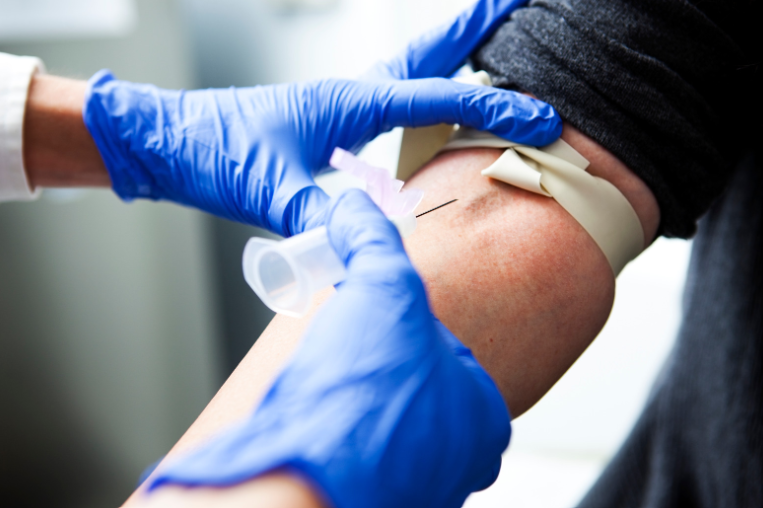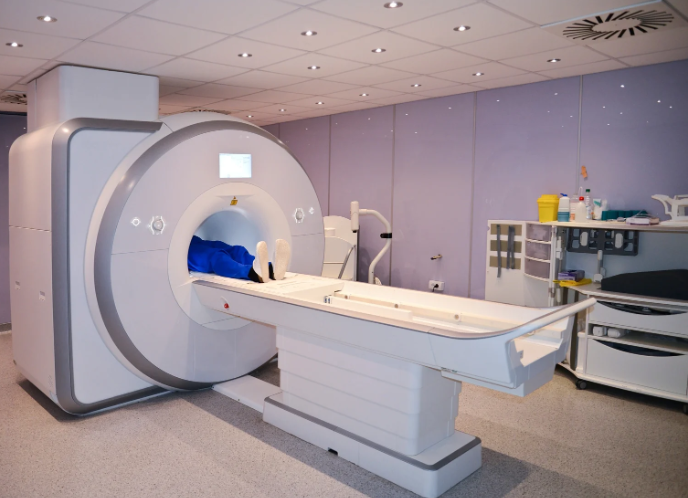Why I Volunteered to Be a Pin Cushion for Science
Why I Volunteered to Be a Pin Cushion for Science

When I was diagnosed with Multiple Sclerosis (MS), back in 1996, it was a shock. It was an unknown. I remember when I told my supervisor at the time, I later overheard him saying something to the effect of “she’s going to die.”
No kidding. We all are.
A few weeks later, my neurologist referred me to the division of the National Institutes of Health (NIH) that works on MS. After going through some additional testing to make sure that I “qualified”—meaning that I actually had the disease—I was invited to participate in a clinical trial that would last a few years.
In this clinical trial, I would need to visit NIH monthly for bloodwork, take several physical and cognitive tests, and have an MRI—and give myself an injection twice a day.
To me, deciding to participate was an easy decision.
It was hard to get an appointment with my outside neurologist at the time, but at NIH, I saw a neurologist once a month.
My family was halfway across the country, so I felt rather alone. It was nice knowing that there was someone who understood the disease that I could talk to.
My Journey in Clinical Trials
I have been going to NIH since 1996. I have participated in four clinical trials and am now in a long-term protocol with a yearly visit.
For each trial, there is extensive protocol paperwork that goes into great detail about what they’re testing and what the possible risks are. Researchers take a patient-centered approach and only suggest participation in a trial if they think it will help you.
You also have time to involve your caregivers in shared decision-making before you sign any paperwork—and can withdraw from the trial at any time. Because I was single at the beginning with no family in the area, I had to rely on a group of friends to be my caregivers and drive me home after a lumbar puncture.
Since that first trial, I was in a trial for an immunosuppressant that already had FDA approval for something else, requiring a monthly infusion. The results for that trial were so good that after the trial ended, my insurance company agreed to pay for it. I considered it a miracle drug—no side effects and no more heat sensitivity.
When the manufacturer stopped making the drug because there were better/cheaper drugs for the original purpose, another pharmaceutical company stepped up to create a subcutaneous version of the drug. I was the first patient at NIH in the protocol to test it.

For Me, the Pros Outweigh the Cons
Because of my involvement in these clinical trials, I now have an outside neurologist who specializes in MS.
I have also become one of the “go-to” people they periodically contact when they’re conducting a short-term study.
I know that my mom wished she could have been there to help me, but as a long-distance caregiver, she felt better knowing that I was getting such good care—but would still check in with me after each procedure beyond the monthly clinic visit.

Do I enjoy getting blood or platelets drawn regularly, lumbar punctures, having MRIs that last more than an hour? No, but I have no regrets.
In my mind, my participation is getting me cutting-edge care and I have a dedicated team monitoring my disease.
I feel I’m helping researchers get closer to a cure—which would help me. And when researchers there have a potential cure, I have no doubt that I will be one of the patients they contact to try it.
Participating in a clinical trial isn’t the right option for everyone.
Making the Decision to Participate in a Clinical Trial
If your loved one is considering participating in a clinical trial, CAN has information about how to support your loved one in a trial, some of the pros and cons, and what to expect.
I also suggest that you do some research, think about the pros and cons, and be realistic.
Whatever is being tested may not help them—but it might just be the treatment, device, intervention that they need.
For more information on finding a clinical trial for your loved one’s disease or condition, there are searchable databases of trials taking place all around the country.



